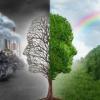News
Displaying Results 126 - 150 of 155
Buildings consume over 70 per cent of the electrical power generated and 40 per cent of primary energy and are responsible for 40 per cent of carbon dioxide emissions from related fuel combustion. At the same time, in 2018, out of 4.5 trillion USD spent on building construction and renovation, the…
While consumer demand for sustainable goods is an important driver for change, regulation and policy change are essential if the world is to side-step a climate catastrophe and bend traditional linear economic models towards a circular economy and sustainable future. Until recently it wasn’t clear…
With the COVID-19 pandemic, Trade facilitation has acquired even greater importance for the land-locked countries of Central Asia, as it helps remove burdensome formalities for their trade and transport operations. Simplifying and digitalizing procedures helps diminish physical contacts along…
Olga Algayerova
Women’s Day Blog
On the occasion of the International Women’s Day, I would like to pay tribute to all women leaders, and all women and men, girls and boys, who are empowering women and girls to build a better future for all!
The theme of this year’s International Women’s Day is…
Achieving equality between women and men is a core goal of governments and the international community. The frameworks that guide us towards this goal—the Sustainable Development Agenda and The Beijing Platform for Action, among others—emphasize that for equality to be achieved, women and men must …
The days of voluntary measures to improve sustainability in the garment and footwear sector appear to be numbered, according to speakers at a recent event. With regulation and smart policy implementation, the sector has the potential to build back better post-COVID-19, prioritising the environment …
A new working paper, Adapting household surveys to the situation of the pandemic, shows that statistical producers in countries in the UNECE region have moved fast to measure the effects of the pandemic on households, and to adapt data collection to crisis conditions; but they need support for…
Waste has turned into one of humanity’s predominant challenges. The generation of hazardous waste increased from an estimated 259 metric tonnes in 2007 to 394 metric tonnes in 2015; the most significant increases were from lower middle-income and higher middle-income countries and despite policy…
The COVID-19 pandemic has exposed dysfunctions in many systems, including those that affect the lives of older people and their communities. COVID-19 has disproportionately affected older persons – nearly 9 out of 10 COVID-19 deaths in the UNECE region have been among those aged 65 and older.…
After months of the COVID-19 crisis challenging healthcare systems and undermining economies, governments worldwide are looking for ways to jump-start the economic recovery. Without factoring in environmental concerns, recovery packages risk undermining the foundations for sustainable development, …
Consumers are increasingly interested in making more environmentally and ethically aware choices when it comes to the clothes and shoes they wear, according to a series of recent studies. But the sector is awash with complex language and misleading labelling that makes it difficult for consumers to…
An estimated one billion people worldwide live with disabilities. In the European Union, one person in seven among the working age population reports a difficulty with a basic activity – such as walking, seeing or hearing, lifting or carrying, sitting or standing, and remembering and concentrating…
New guidance published by UNECE’s Conference of European Statisticians offers support to national statistical offices to better communicate their statistics about gender equality. The guidance, developed by a task force of experts from across the region, focuses on six themes: the gender pay gap;…
The current patterns of raw material consumption are unstainable and are becoming an existential threat to the planet.
The United Nations Framework Classification for Resources (UNFC) offers a solution to support a total transformation towards a sustainable resource management future. To…
Technologies can play a key role in the transition from a linear towards circular economy. Circular strategies represent key investments to shape trade and logistics that are more resilient, resource-efficient and cost-effective, supporting the Sustainable Development Goals.
However, the risk…
We stand at a critical moment. More than ever, the great challenges we face – like COVID-19, the climate crisis, unsustainable resource use, and inequalities – cannot be faced by one country alone. The 75th anniversary of the United Nations is the time to reflect on how we can best work together to…
The risk that advances in digital technology benefit those who are already online and could contribute to greater inequality within and among countries needs to be addressed by effective policies, leaving no one behind.
The United Nations system is engaged to help address these…
The European Green Deal is a new growth strategy aiming to transform the European Union into a modern, resource-efficient and competitive economy. The European Green Deal has a number of overarching objectives, including for the European Union to reach net-zero GHG emissions by 2050; promotion of…
COVID-19 has significantly changed the way UN/CEFACT works. As the focal point within the United Nations Economic and Social Council for trade facilitation recommendations and electronic business standards, UN/CEFACT typically convenes experts twice per year to a week-long Forum to discuss current…
Data can be a matter of life and death. We have seen in recent years how statistical information about the structure of the communities affected by earthquakes or typhoons—how many people, in which age groups, and in which locations—is essential for making quick and informed decisions to mobilize…
The COVID-19 health crisis has caused wide-ranging socio-economic disruption worldwide. This has exposed and aggravated existing social imbalances. The pandemic has called for unprecedented measures to protect those so close to our heart: our parents, grandparents, the elderly and vulnerable.…
With the consequences of COVID-19 still unfolding, one area of major disruption has been to global food systems, resulting in significant increases in food loss and waste.
Today, the first ever International Day of Awareness of Food Loss and Waste, is a wake-up call. We must access and make…
While COVID-19-related disruptions may have impacted people’s mobility and slowed cross-border movements of people and goods this year, pollution knows no travel restrictions. Air pollutants, travelling through our atmosphere, can harm people and the environment even thousands of kilometres…
The countries of the UN Special Programme for the Economies of Central Asia (SPECA) - Afghanistan, Azerbaijan, Kazakhstan, Kyrgyzstan, Tajikistan, Turkmenistan and Uzbekistan - gathered for a virtual session of the SPECA Working Group on Innovation and Technology for Sustainable Development (WG on…
In early March this year, the UN Secretary-General called for countries to step up their efforts and turn deforestation around in order to make 2020 a ‘super year’ for nature.
This call arrived following the release of an alarming report highlighting the unprecedented speed at which ecosystems…
















